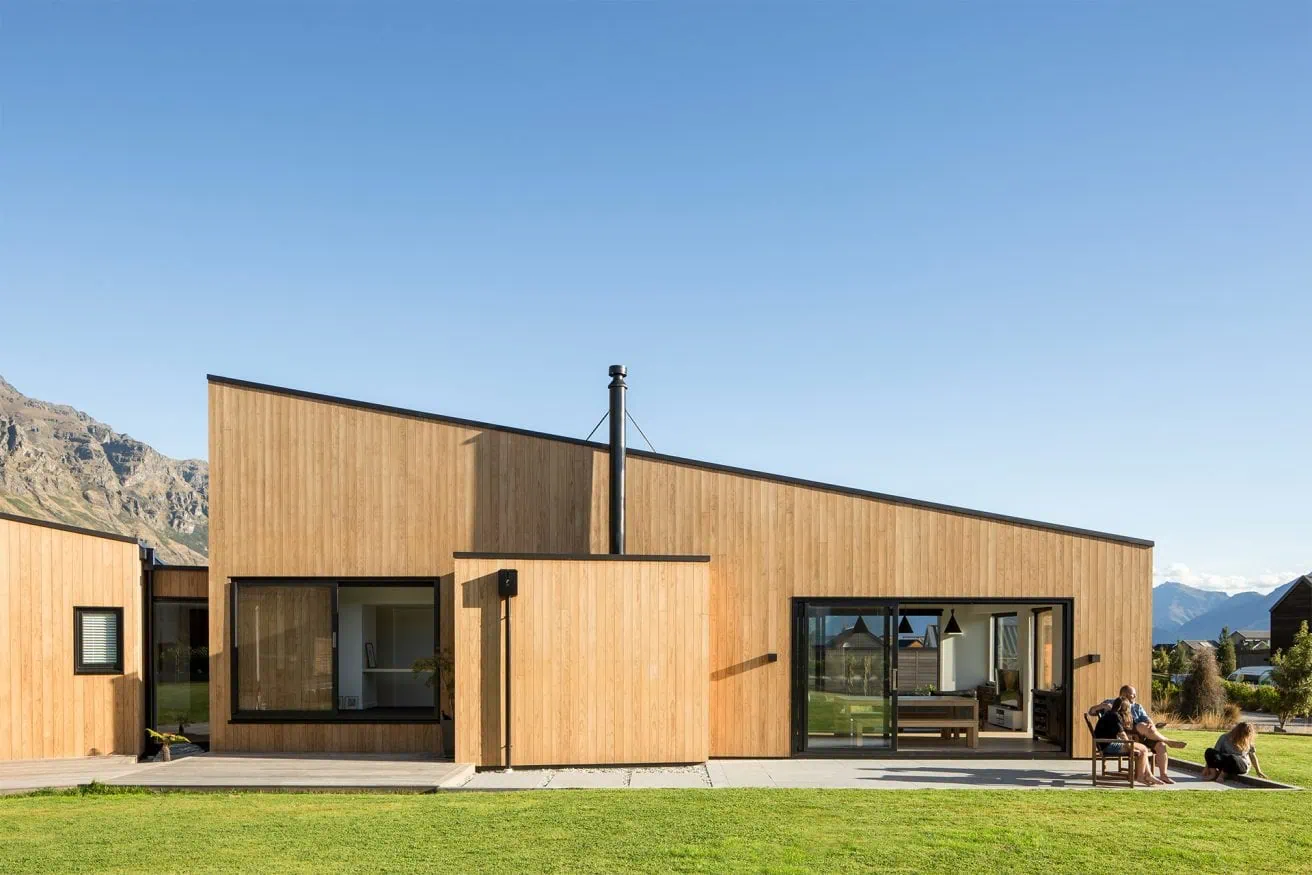Natural materials that complement the local wildlife. This family house was designed to blend in with the surrounding landscape. From an architectural perspective, it can be better described as comfortable than grandiose, and it doesn’t look out of place among the traditional farm buildings that are common in the area. The building provides a natural complement to its backdrop of a dramatic mountain range, creating a harmonious accompaniment rather than a sharp contrast. In this symphony, nature plays the lead.

BEN HUDSON ARCHITECTS
2018
THERMORY BENCHMARK THERMO-RADIATA PINE CLADDING C3
NATURAL
NEW ZEALAND
The house’s architect, Ben Hudson, emphasizes the efficient use of space in the design. Hudson lives in the building and also uses it as a studio, which is why the house is divided into two pavilions – a sleeping quarter and a living area for everyday activities and work. Meanwhile, the garden is designed to go hand in hand with nature; the plants are native to the area and provide a habitat for insects and birds.
The layout of the living quarters is adapted to follow the movement of the sunlight – the morning sun shines in on the kitchen area, making it perfect for coffee at sunrise, while the work rooms are illuminated by the midday light and sunset provides the perfect lighting conditions for relaxing and socializing in the lounge. The predominantly white surfaces inside accentuate the play of light and shade, contrasting with the dark cedar walls.
The use of natural materials played an important role in the planning of the house, which had to fit naturally within the wild mountainous landscape where it is located. Hudson chose wood for façade, which provides a relaxed look and emphasizes the surrounding nature as the main attraction.
Thermory’s naturally enhanced cladding boards were chosen for their durability and aesthetic appearance, with the added advantage that they are made with wood from sustainably managed forests that is processed without chemicals, supporting the architect’s desire to use nature-friendly materials.
The outer cladding is made from Thermory Benchmark Intense Radiata Pine that is knot-free and lightly stained to further enhance the wood’s natural character. The intense thermal modification makes our wood products ideal for use in outdoor settings. Thermally treated radiata pine is easier to maintain and has a significantly longer lifespan than conventional wood. It is also dimensionally stable due to its low moisture level, which makes it ideal for this project. The surrounding mountainous landscape is truly wild, with extremes of weather from hot summers to icy winter conditions. Ben Hudson is certain that the thermally modified wood from Thermory will last for years and age with dignity.